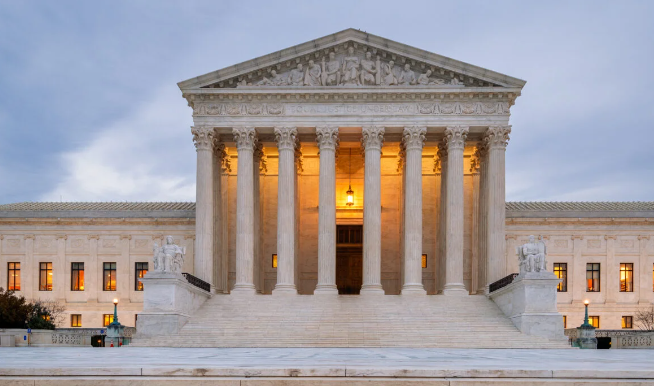The Latest News
Supreme Court Decides the Fate of Biden’s Student Debt Relief

The Supreme Court held a hearing this week to assess the fate of the Biden Administration’s promise to forgive up to $20,000 in student loan debt for millions of Americans – a scheme that might cost up to $400 billion.
The Supreme Court Justices heard arguments from the Biden Administration and six Republican states participating in objections to the scheme during a three-hour session on Tuesday. Arkansas, Iowa, Kansas, Missouri, Nebraska, and South Carolina are the six states.
Plaintiffs have the support of the court’s conservative majority, while the Biden Administration has the support of three liberal justices.
Major arguments in favor of moving forward with the debt relief plan:
- States do not have legal grounds to sue because they cannot show actual harm or injury resulting from the program.
- Student loan payments were paused in March of 2020 and nobody sued over that decision.
- The federal government helped small businesses during the pandemic; why can’t it help students?
According to US Solicitor General Elizabeth Prelogar, the Biden Administration’s debt forgiveness proposal is permissible under the Higher Education Relief Opportunities for Students Act of 2023 (HEROES Act), a bill enacted to help military members deployed to Afghanistan and Iraq by giving debt relief. ‘The HEROES Act expressly allows the Secretary of Education the authority to waive or amend federal student loan programs as considered essential in conjunction with a war, other military action, or national emergency,’ she explained.
Prelogar went on to say that when lawmakers approved the HEROES Act, they knew it could be used to forgive massive amounts of student debt (a claim the opposition disputes), and that any action by the Supreme Court to invalidate the plan would call the federal government’s ability to protect Americans during a national emergency into question.
Major arguments against the debt relief plan:
- It’s too expensive. The plan will increase the national deficit and burden the poor and working class with taxes.
- It’s not fair. The plan will take taxpayer funds from individuals who never went to college or who paid off their loans in order to forgive the loans of others.
- It’s not legal. The plan supersedes the appropriations authority granted to Congress and violates the separation of powers doctrine the Supreme Court is supposed to uphold.
At least five of the court’s six conservative justices agreed with the opinion that using the HEROES Act to cancel student debt violates the court’s “major questions doctrine” of 2022, which states that an agency cannot make decisions of “vast economic or political significance” unless given authority by Congress.
“If you talk about this in the abstract, I think most casual observers would say, if you’re going to give up that much money, if you’re going to affect the obligations of that many Americans on a subject that’s of great controversy, that’s something for Congress to act on,” Chief Justice John Roberts said.
Prelogar’s emphasis on the phrase “waive or amend” in reference to the use of the HEROES Act to eliminate student debt irritated Roberts. “It may be decent English to argue that the French Revolution’modified’ the standing of the French nobility, but only because there is a figure of speech called understatement and a literary device called irony,” he explained. “We’re talking about $500 billion and 43 million Americans… “How does that fit into the standard definition of’modify?'”
The principal issue for Missouri plaintiffs is the possible financial impact on the Missouri Higher Education Loan Authority (MOHELA), one of the nation’s largest holders and servicers of student loans.
Interestingly, Trump-appointed Judge Amy Coney Barrett agreed with her liberal colleagues that MOHELA’s financial obligations are not so inextricably linked to the state that it can sue on the company’s behalf. “Since MOHELA is an arm of the state, why didn’t you just force MOHELA to pursue this suit?” Barrett questioned.
The Supreme Court will spend the next few months considering the subject before issuing an opinion (hopefully without a draft this time). The final decision is scheduled to be made public in June. The pandemic repayment halt, which began in March 2020, will end 60 days after the Supreme Court makes its ruling.






